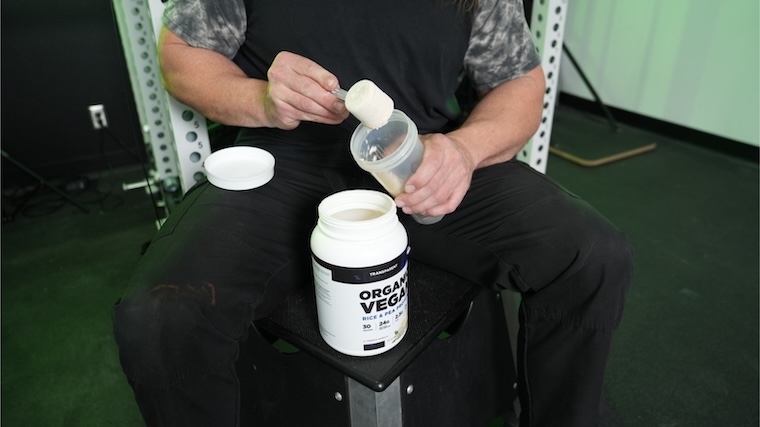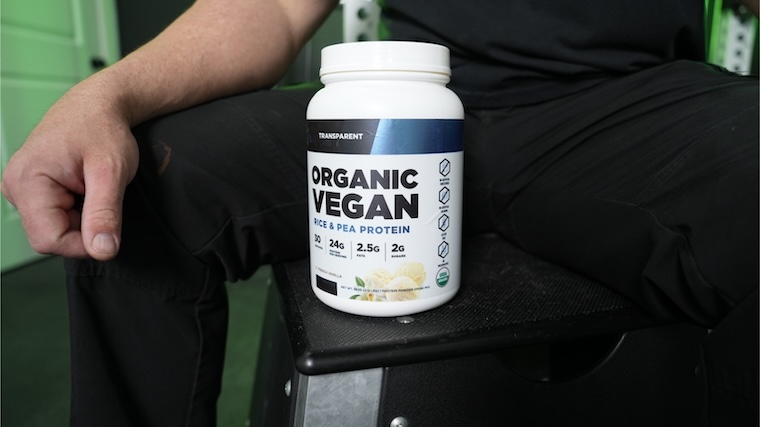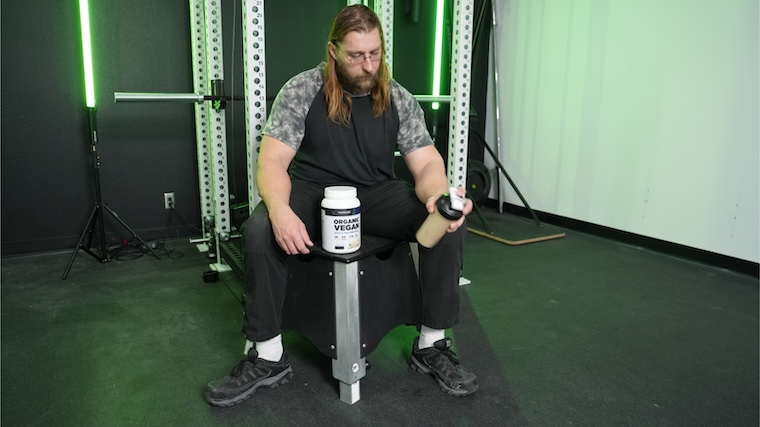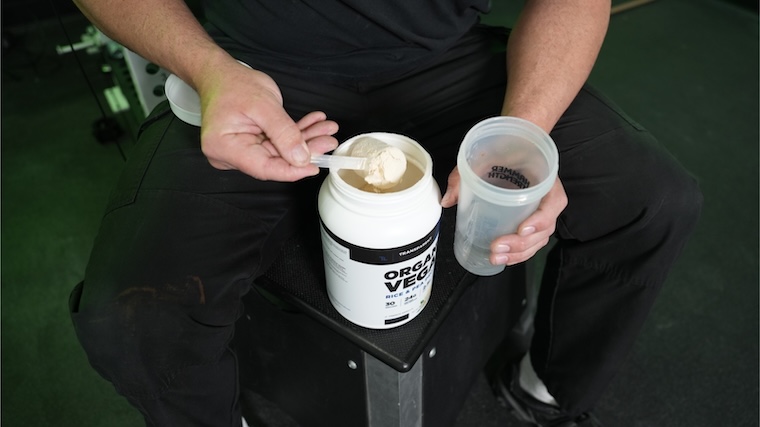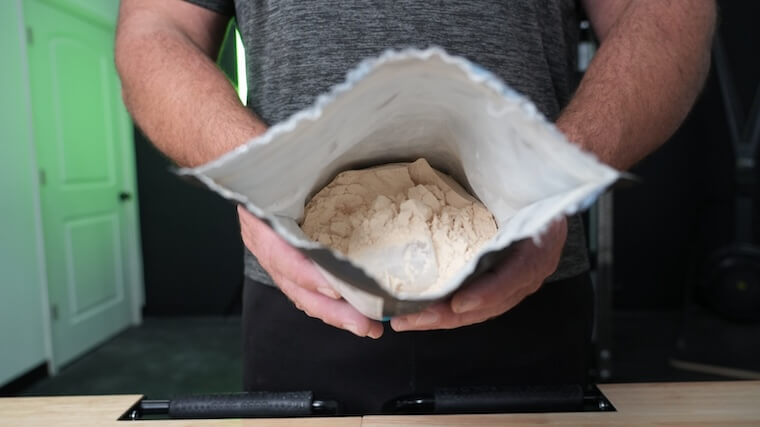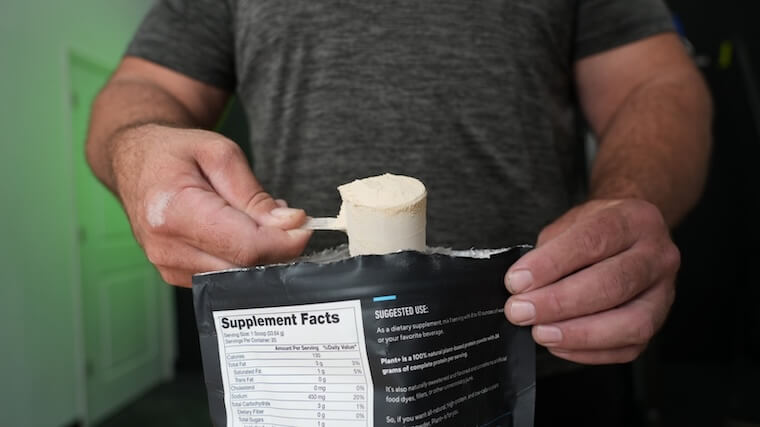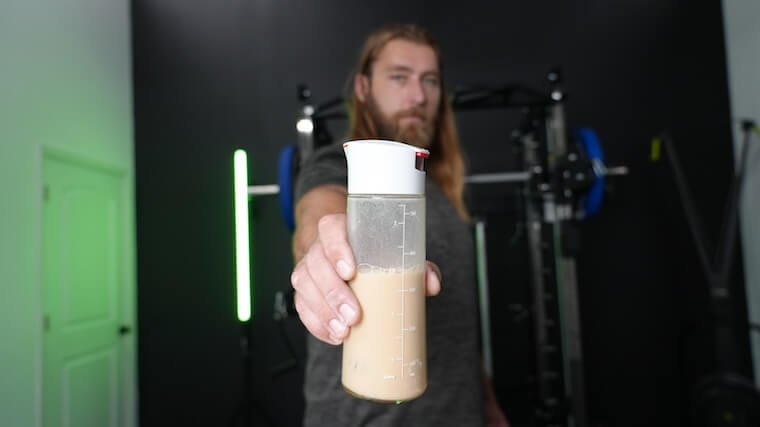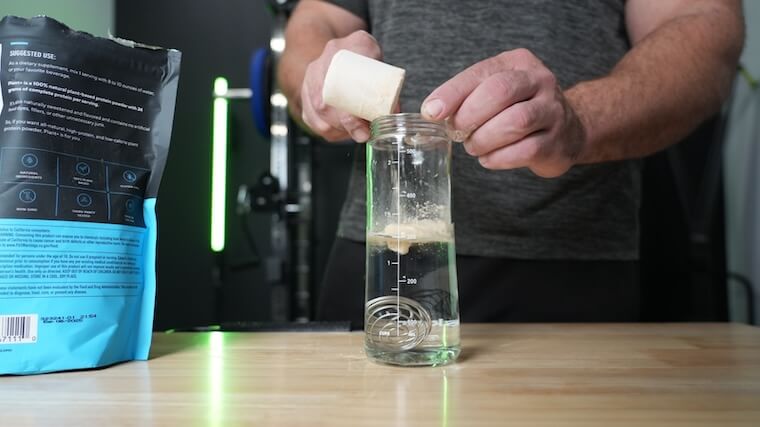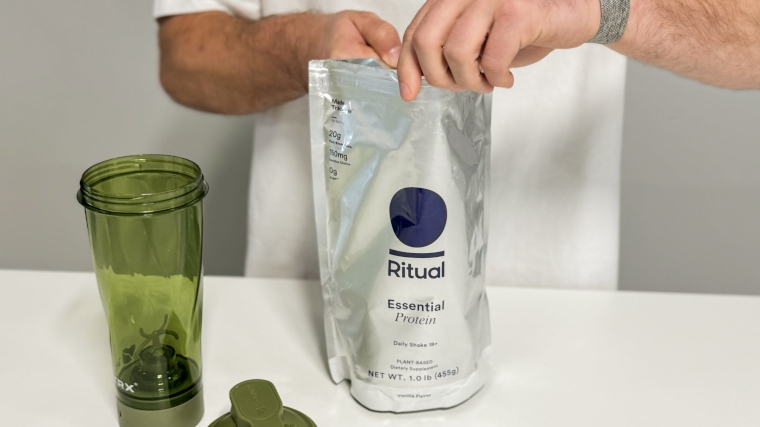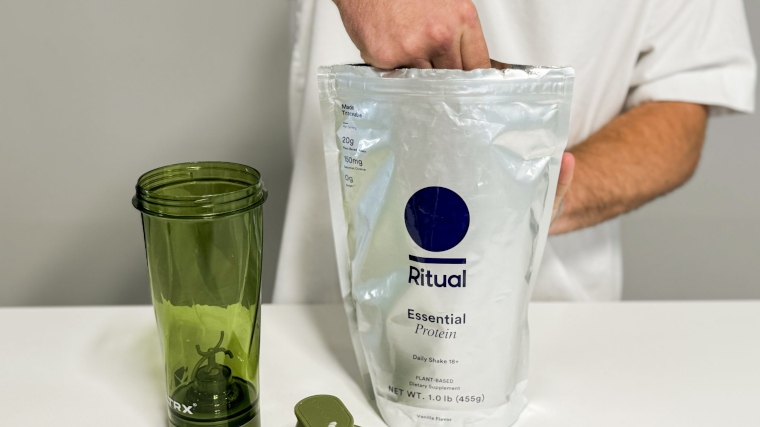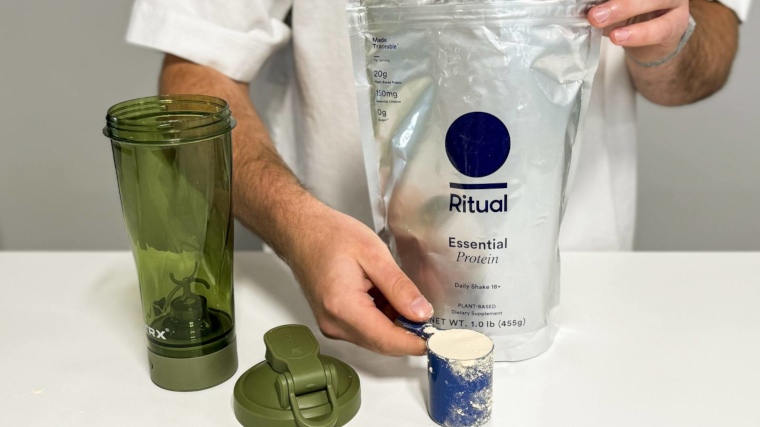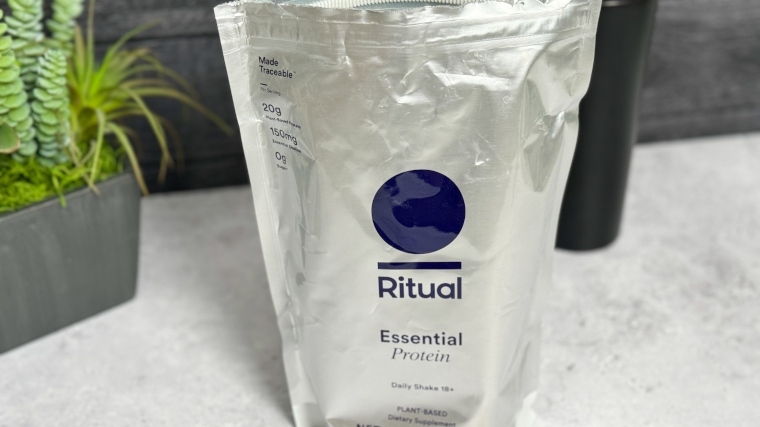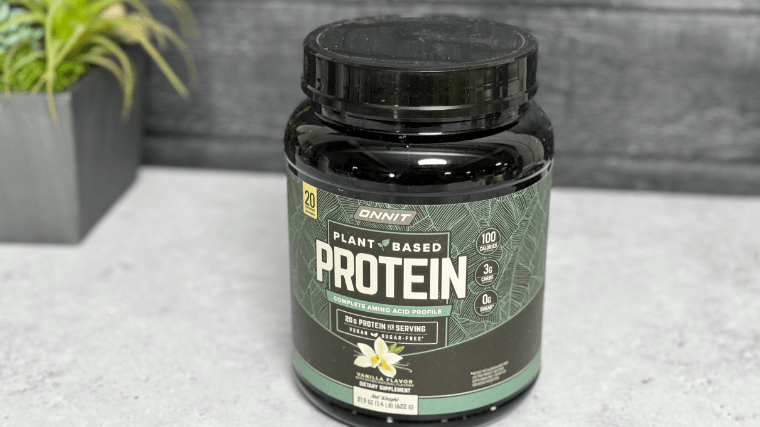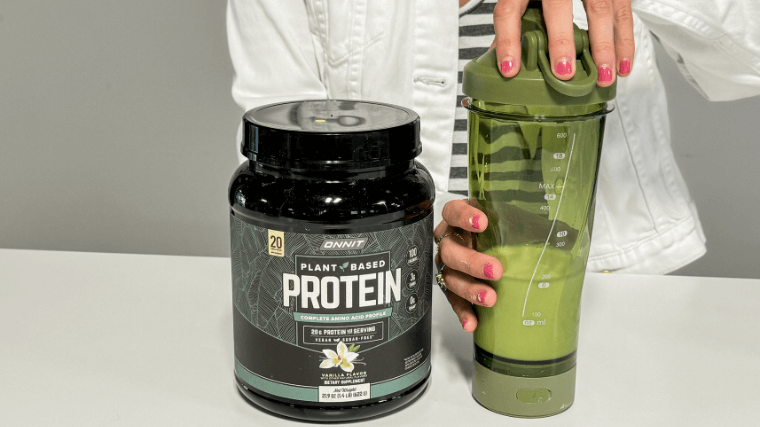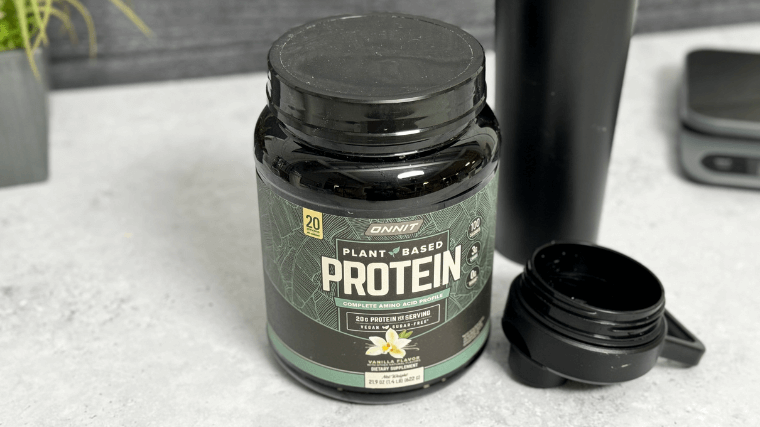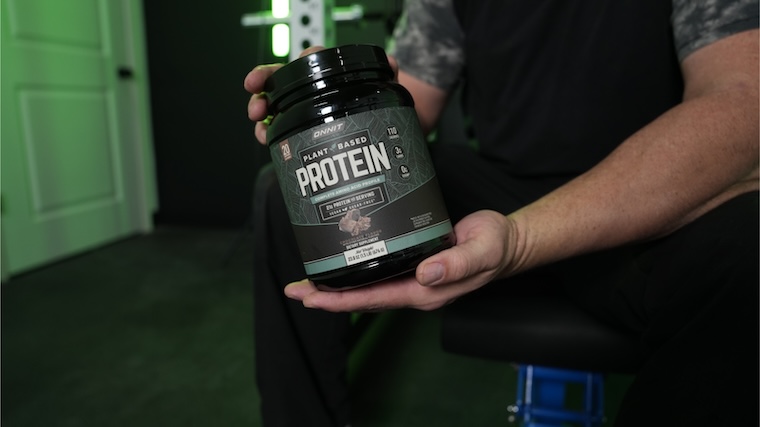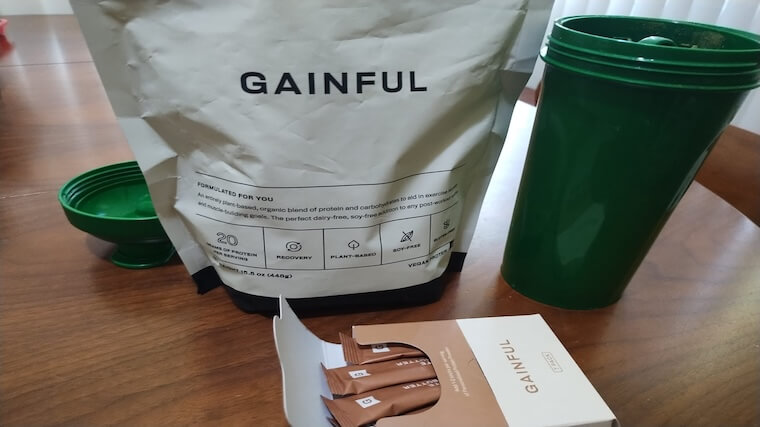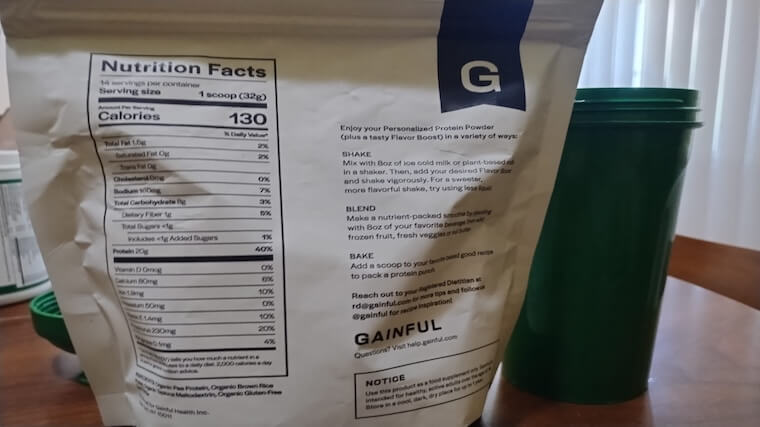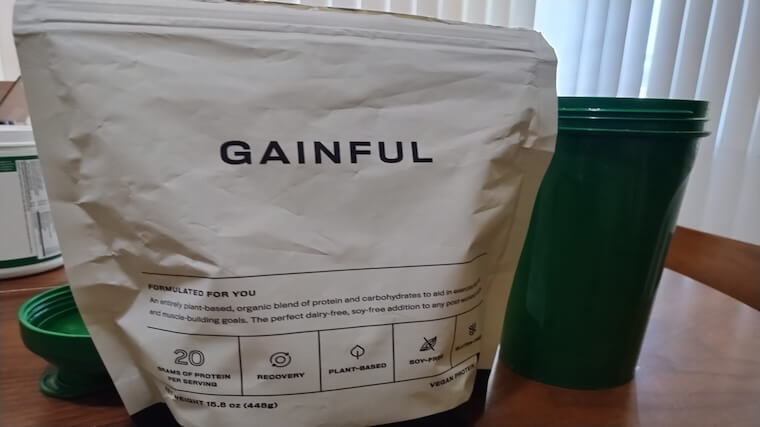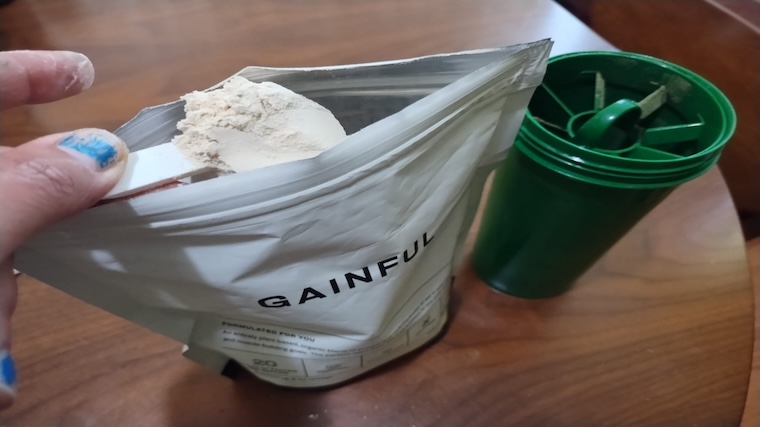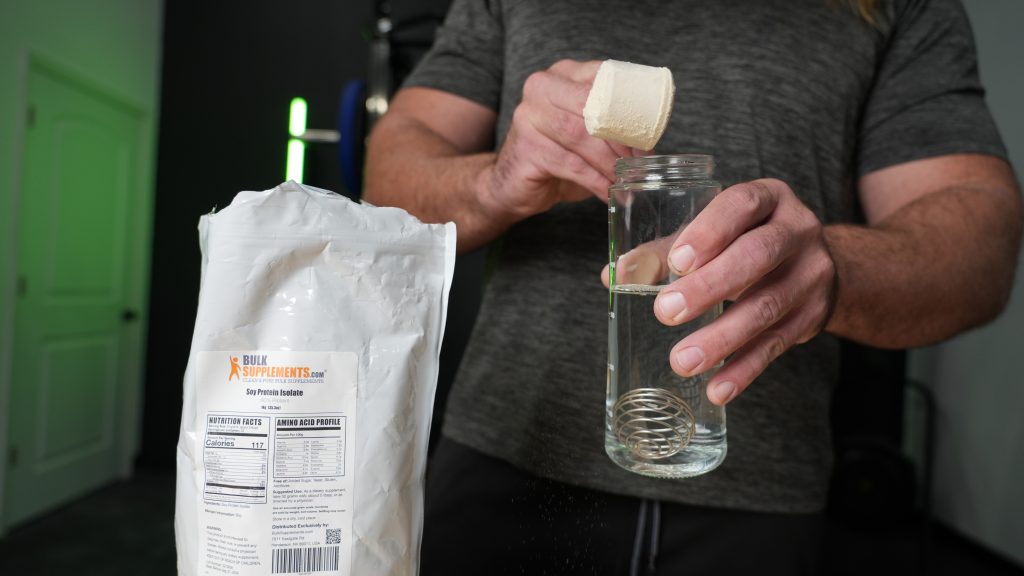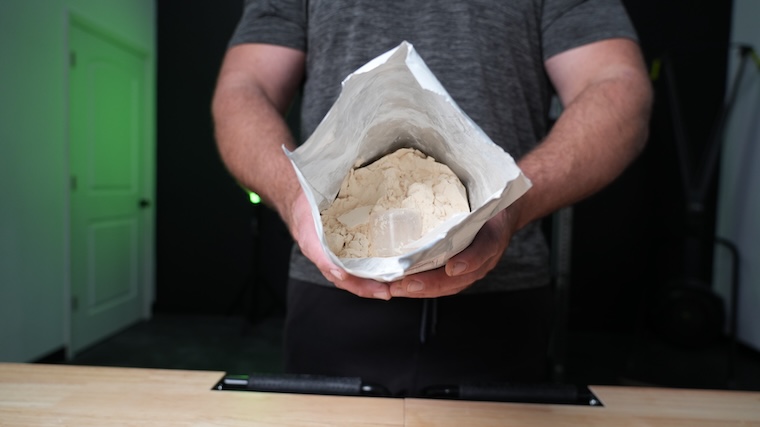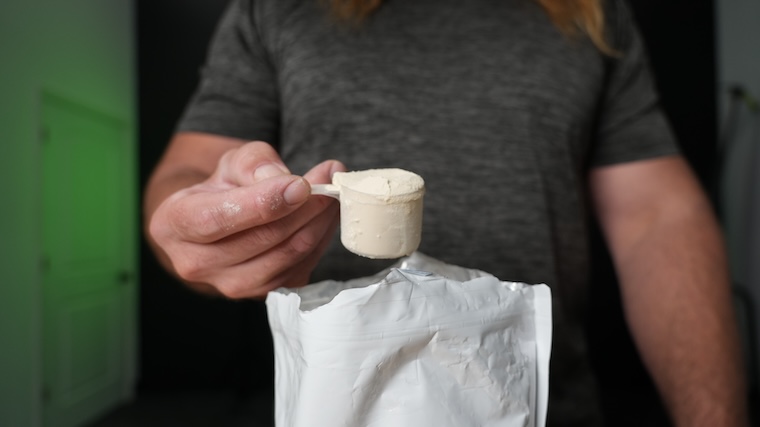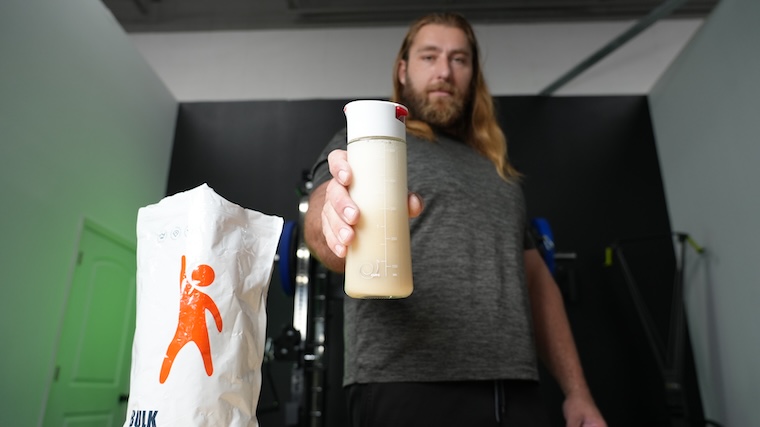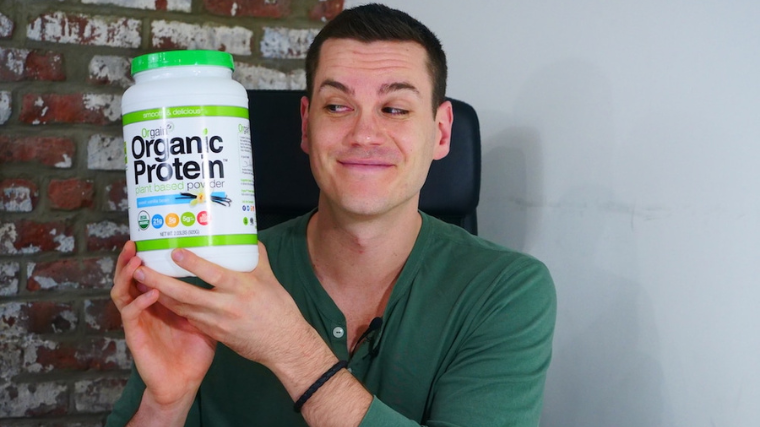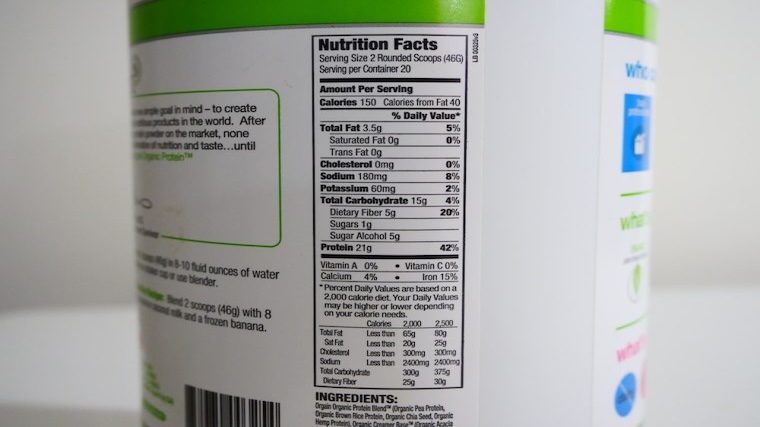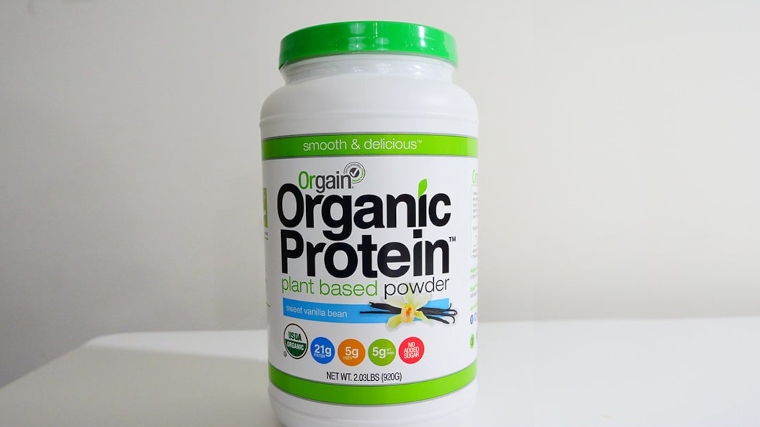Meat-eaters and plant-based eaters don’t always have much in common when it comes to what’s on their plates, but one fact remains — both need protein. While it may have been a bit challenging for vegans to meet their protein goals in the past, there are plenty of plant-based proteins on the market today. And yes, they rival even some of the best whey protein powders, too.
But a simple Google search for vegan protein supps yields hundreds of results, and combing through all those pages and ingredient lists can be exhausting. Our team of expert product testers, including personal trainers and athletes, tried more than 100 different protein supplements. We’ve gathered all the best vegan protein powders for plant-based athletes looking for muscle growth, extra probiotics, weight loss, and more.
The Best Vegan Protein Powders of 2025
- Best Vegan Protein Powder Overall: Transparent Labs Organic Vegan
- Best Vegan Protein Powder for Weight Loss: Legion Plant+
- Best Organic Vegan Protein Powder: Ritual Daily Essential Shake 18+
- Best Vegan Protein Powder for Bodybuilding: Transparent Labs Vegan Mass Gainer
- Best Tasting Vegan Protein Powder: Onnit Plant-Based Protein
- Best Vegan Protein Powder for Athletes: Gainful Plant-Based Protein
- Best Unflavored Vegan Protein Powder: Bulk Supplements Soy Protein Isolate
- Best Budget Vegan Protein Powder: Orgain Organic Vegan Protein Powder
- Best Vegan Protein Powder for Probiotics: Pure Food Plant-Based Protein Powder
- Best Vegan Protein Powder with Greens: Vega Protein & Greens
- Best Soy Protein Powder: NOW Sports Soy Protein Isolate
Editor’s note: The content on BarBend is meant to be informative in nature, but it shouldn’t take the place of advice and/or supervision from a medical professional. The opinions and articles on this site are not intended for use as diagnosis, prevention, and/or treatment of health problems. Speak with your physician or nutritionist if you have any concerns.
Best Vegan Protein Powders Video Review
Join BarBend expert tester Jake Herod, NASM-CNC, and registered dietitian nutritionist Chelsea Rae Bourgeois, MS, RDN, LD, as they compare plant-based protein powders to whey options and break down some of our vegan-friendly picks.
Best Vegan Protein Powder Overall: Transparent Labs Organic Vegan
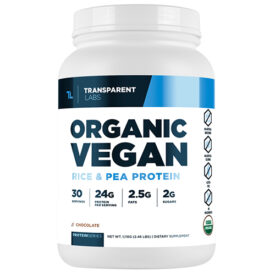
A surprisingly delicious vegan protein powder that's totally free from artificial ingredients and soy, Transparent Labs Organic Vegan Protein contains a 2:1 ratio of rice to pea protein powder, and four grams of fiber.
Specs
- Price Per Serving: $1.67
- Protein Source: Organic rice protein, organic pea protein isolate
- Protein Per Serving: 24g
- Calories Per Serving: 130-140
- Third-Party Testing: Yes (Informed Protein)
- Available Flavors: Chocolate, French Vanilla
Best Vegan Protein Powder for Weight Loss: Legion Plant+
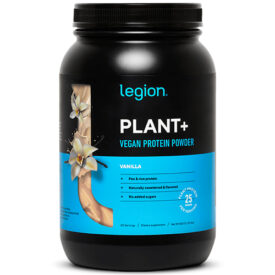
Legion's Plant+ has 25 grams of protein per serving, just four grams of carbs, and is packed with vitamins and minerals that plant-based eaters may want more of. Use code "BARBEND" for 20% off!
Specs
- Price Per Serving: $2.50
- Protein Source: Pea protein isolate, rice protein concentrate
- Protein Per Serving: 24-25g
- Calories Per Serving: 130-140
- Third-Party Testing: Yes
- Available Flavors: Apple Pie, Chocolate, Cinnamon Cereal, Mocha Cappuccino, Salted Caramel, Vanilla
Best Organic Vegan Protein Powder: Ritual Essential Daily Shake 18+
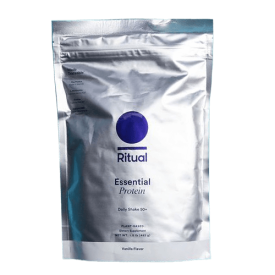
This clean, transparent protein powder relies on organic, non-GMO yellow peas for its 20-gram protein dosage. Additionally, the subscription-based model helps ensure you’re always stocked up to help you meet your nutritional goals day in and day out.
Specs
- Price Per Serving: $2.67
- Protein Source: Organic pea protein
- Protein Per Serving: 20g
- Calories Per Serving: 115
- Third-Party Testing: Yes (Informed Sport, Informed Protein)
- Available Flavors: Vanilla
Best Vegan Protein Powder for Bodybuilding: Transparent Labs Vegan Mass Gainer
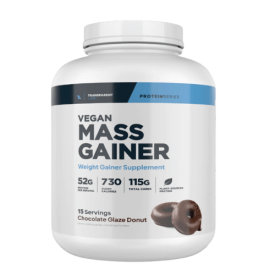
Transparent Labs Vegan Mass Gainer is ideal for athletes following a plant-based diet who also want to put on some mass. This supplement is made with a pea protein isolate and zero animal products.
Specs
- Price Per Serving: $5.33
- Protein Source: Pea protein isolate
- Protein Per Serving: 52g
- Calories Per Serving: 730
- Third-Party Testing: Yes
- Available Flavors: Chocolate Glaze Donut, Vanilla Cupcake
Best-Tasting Vegan Protein Powder: Onnit Plant-Based Protein
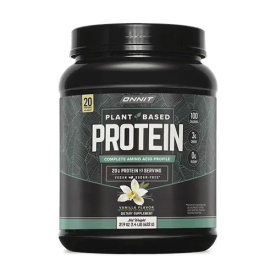
Onnit's plant-based protein powder is made of a blend of pea, pumpkin, sunflower seed, and watermelon seed proteins. This one is available in two separate flavors, too, including Chocolate and Vanilla.
Specs
- Price Per Serving: $2.25
- Protein Source: Pea protein concentrate, pumpkin seed protein powder, sunflower seed protein powder, watermelon seed protein powder
- Protein Per Serving: 20g
- Calories Per Serving: 100-110
- Third-Party Testing: Yes (Informed Sport)
- Available Flavors: Vanilla, Chocolate
Best Vegan Protein Powder for Athletes: Gainful Vegan Protein
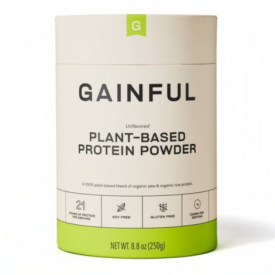
Gainful Plant-Based Protein Powder offers up to 24 grams of organic brown rice and pea protein, which delivers a complete amino acid profile. Right now, take 50% off your first order with the code: BF50.
Specs
- Price Per Serving: Starting at $3.21
- Protein Source: Organic brown rice and pea protein
- Protein Per Serving: Up to 24g
- Calories Per Serving: Around 120
- Available Flavors: Flavor boost packs available in Sea Salt Caramel, Rich Chocolate, Cinnamon Toast, Cookies and Cream, Cafe Mocha, Chocolate Peanut Butter, Strawberry Cream, and Madagascar Vanilla
Best Unflavored Vegan Protein Powder: Bulk Supplements Soy Protein Isolate
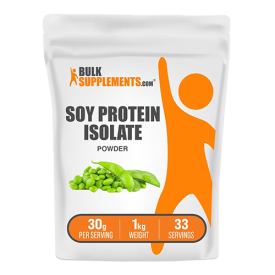
Bulk Supplements Soy Protein Isolate is made with 100 percent plant-based protein, so it's vegan-friendly. For your convenience, you can also choose from several bulk purchase options.
Specs
- Price Per Serving: Starting at $0.42
- Protein Source: Soy protein isolate
- Protein Per Serving: 25g
- Calories Per Serving: 90
- Third-Party Testing: Yes
- Available Flavors: Unflavored
Best Budget Vegan Protein Powder: Orgain Organic Vegan Protein Powder
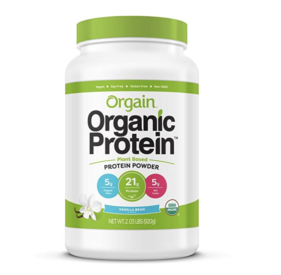
Orgain Organic Protein Plant Based Powder offers 21 grams of protein per serving, along with 5 grams of fiber and net carbs!
Specs
- Price Per Serving: Starting at $1.90
- Protein Source: Organic pea, organic brown rice, organic chia seed
- Protein Per Serving: 21g
- Calories Per Serving: 140-190
- Third-Party Testing: Yes
- Available Flavors: Creamy Chocolate Fudge, Chai Latte, Chocolate Caramel Sea Salt, Chocolate Coconut, Chocolate Peanut Butter, Churro Caramel Swirl, Cookies ’n Cream, Fruity Cereal, Horchata, Iced Coffee, Natural Unsweetened, Peanut Butter, Strawberries & Cream, Vanilla Bean, Vanilla Horchata
Best Vegan Protein Powder for Probiotics: Pure Food Plant-Based Protein Powder
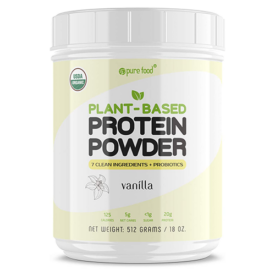
With one billion colony forming units (CFUs) of probiotics, Pure Food's vegan protein powder should be your pick for more optimal gut health. This powder also contains 20 grams of protein and four grams of BCAAs.
Specs
- Price Per Serving: $1.43
- Protein Source: Organic pea protein, organic brown rice protein
- Protein Per Serving: 10g
- Calories Per Serving: 68-70
- Third-Party Testing: Yes
- Available Flavors: Vanilla, Chocolate
Best Vegan Protein Powder with Greens: Vega Protein & Greens
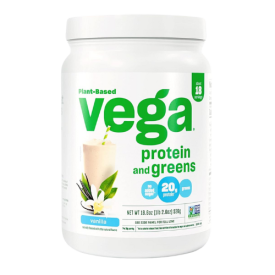
This impressive protein powder packs in 20 grams of plant-based protein alongside whole-food ingredients such as broccoli, kale, alfalfa, and more to create a daily greens-protein powder hybrid supplement. Despite this unique combination, Vega Protein & Greens delivers exceptional flavor that’s enjoyable enough for daily consumption.
Specs
- Price Per Serving: Starting at $1.11
- Protein Source: Pea protein, organic brown rice protein
- Protein Per Serving: 20g
- Calories Per Serving: 120-130
- Third-Party Testing: No
- Available Flavors: Berry, Chocolate, Vanilla, Coconut Almond
Best Soy Protein Powder: NOW Sports Soy Protein Isolate
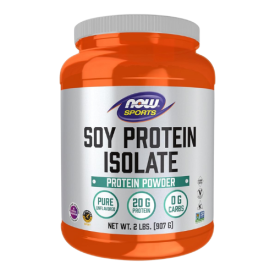
NOW Sports Soy Protein Isolate is an unflavored soy protein powder that can be quickly added to smoothies and other recipes. Non-GMO soy protein isolate is the lone ingredient, too, so there’s no questions surrounding unwanted fillers, artificial sweeteners, or other unnecessary additions you may find in other protein supplements.
Specs
- Price Per Serving: $0.95
- Protein Source: Soy protein isolate
- Protein Per Serving: 20g
- Calories Per Serving: 90
- Third-Party Testing: Yes (Informed Choice, Informed Sport)
- Available Flavors: Unflavored
How We Tested and Chose the Best Vegan Protein Powders
The BarBend team is made up of competitive athletes, certified personal trainers, and lifelong fitness enthusiasts. To determine the best vegan protein powders available today, we’ve tested nearly 100 different profiles from the industry’s best brands, using our supplement testing methodology to rate each profile on a scale of 1 (lowest) to 5 (highest). Below are some of the categories and components that played into our rankings.
- Type of Protein and Texture: There are four main types of vegan protein powder: pea protein, hemp protein, brown rice protein, and soy protein. The powders on this list may come as a blend of two or more types of these powders, or as a single type. (16)
- Solubility and Texture: Solubility and texture are key with vegan protein powder, as many of these powders are grittier than whey protein. We made sure that all the powders on this list — no matter what they are derived from — have solid solubility.
- Macronutrients: Protein, fat, and carbs are considered macronutrients (macros). Many vegan protein powders tend to contain more carbs, as they are derived from plants. But most of the powders on our list provide macros similar to whey protein, which is much lower in carbs (2-9 grams) and fats (0-6 grams).
- Micronutrients: Some of the micronutrients that vegans may miss in their diet include B12, iron, iodine, zinc, calcium, vitamin D, and long-chain fatty acids such as EPA and DHA — all of which are much easier to sneak into a diet containing animal products. We wanted to include protein powders that featured some of these added micronutrients as well, since many vegans look to protein shakes to fill these gaps in their diet. (17)
- Flavor: We don’t think flavor is the most important factor to consider when picking a plant-based protein, but it still matters. After all, you don’t want to sip a drink that tastes overly earthy or chalky. We sampled a variety of flavors (to appeal to all kinds of taste preferences) and tried our best to paint an objective picture of the taste.
- Ingredient Quality: We know that protein powders can be full of unwanted additives and ingredients. So, we prioritized clean formulas with ingredients that provide as much nutritional value as possible.
Benefits of Vegan Protein Powders
If you eat a plant-based diet, you’ll need to be extra conscious of your protein intake. Alongside boosting your protein intake, there are several benefits of vegan protein powders.
- Boosted Protein: Plant-based sources are usually lower in protein, B12, iron, and a few other vitamins and nutrients. (2) Sipping on some of the best plant protein powders can help increase some of the nutrients (like protein) you may be lacking in your daily diet.
- Added Convenience: Cooking an entire protein-heavy meal isn’t always convenient, and can be pricey. While we recommend prioritizing whole foods as much as possible, vegan protein powders can be convenient in a pinch.
- Gut Health and Digestion: Since vegan protein powders lack lactose — a key component of the best casein proteins and whey proteins — they can be more easily digested with less strain across your gut. Vegan protein powders also offer additional microbe diversity within your microbiome, leading to more regular gut operation and better gut health.
- Calorie Counts and Weight Loss: Studies report that plant-derived protein sources can oftentimes feature fewer calories per serving than animal-based proteins. (16) As such, vegan protein powders can be effective options for those closely monitoring their daily caloric intake. Vegan protein powders can also be some of the best protein powders for weight loss if your aim is to achieve a calorie deficit.
- Recipe Adaptation: You can also use vegan protein powders in a wide range of recipes to help ensure you’re getting enough protein each day. From smoothies to baked goods, salads, and beyond, there are plenty of ways to utilize your powder stocks beyond your typical shaker bottle.
Different Types of Vegan Protein Powder Sources
Vegan protein powders aren’t all made from the same sources. Here’s a breakdown of the four most common vegan protein powder sources.
| Pea Protein | Hemp Protein | Brown Rice Protein | Soy Protein |
| This protein source derived from peas is one of the newer types of protein to hit the market. Its appeal is that it contains all nine essential amino acids and is considered relatively easy to digest. It’s also effective. One study showed that supplementing with pea protein while on a strength training program significantly increased biceps muscle size as effectively as whey protein. (8)(14) | In addition to containing the nine essential amino acids, hemp protein — which is the product of ground-up hemp seeds — also has a solid dose of fiber and healthy fats. Since this type of product is high in fiber, it may help with digestion, but it may also cause gas and bloating in some. (9)(19) | Though it’s not a complete protein, brown rice protein is derived from the protein in brown rice and is void of allergens like gluten, soy, eggs, and nuts. It also digests very quickly, especially compared to a whey product that is derived from dairy. (18) | First, if you have a soy allergy, you’ll want to pick another option from this list. That said, for anyone else, soy protein — which is derived from soybeans — is a fine protein option. And though some may try to steer clear thinking it affects your testosterone levels, more recent studies have shown that to be largely untrue. (10) |
What to Consider Before Buying Vegan Protein Powders
When choosing which plant-based protein powder to buy, here are some important factors you should consider before making your purchase.
Protein Content
Protein content sounds like an obvious consideration, right? Of course, how much protein you need depends on your goals and on other factors, like age, gender, weight, and other medical conditions. For vegans, as we’ve mentioned before, getting enough complete protein in your diet can be a challenge. Athletes may need as much as 1.6 grams or more of protein per kilogram of body weight. (3)
A less intense gym goer who’s trying to keep their nutrition in check may want to pack added protein into their diet as well. On this list, none of the picks dipped below 20 grams of protein per serving, and some options go up to 25 grams.
A Balanced Macronutrient Profile
Your caloric intake matters the most when you’re trying to gain or lose weight, but macros matter, too. There are three main macros — protein (which we’ve already covered), carbohydrates, and fat. Carbs essentially give you the energy to work out (though the carbs you don’t burn are stored as fat, so you need to balance these well). Fats generally regulate your hormones, like testosterone and leptin, and fats contribute to a number of other functions in the body as well. When it comes to carving out a more impressive physique, you want your macros dialed in. (20)
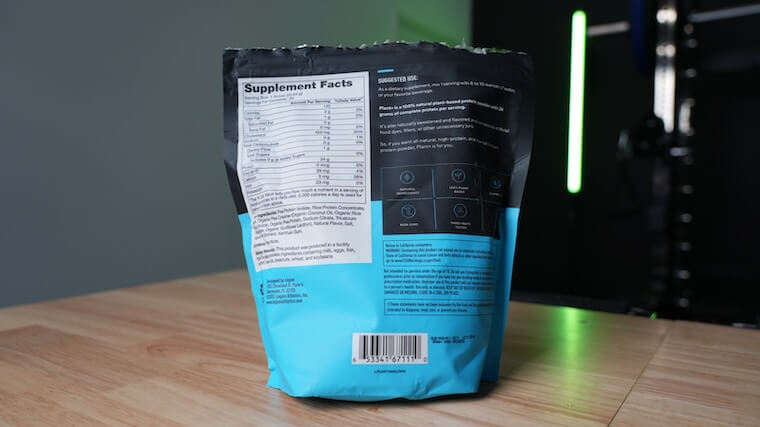
One key to managing your macro intake is choosing foods that enable a healthy macro split (depending on your goals). This way, you can better manage your overall intake and create more balanced meals.
For example, one Big Mac has 563 calories and 33 grams of fat, 44 grams of carbs, and 26 grams of protein. (4) For comparable calories, you can have a cup of rice and half a pound of chicken with spinach — a meal that packs 56 grams of protein, 46 grams of carbs, and 7.5 grams of fat. (5)(6)
For this reason, we chose vegan protein shakes that had minimal grams of carbs and fat to ensure you were getting mainly protein.
Vitamins and Nutrients that Vegans Need
There are specific vitamins and nutrients in meat that vegans might not be getting enough of. To recap, those are B12, iron, iodine, zinc, calcium, vitamin D, and long-chain fatty acids, such as EPA and DHA. (17)
[Related: 7 Micronutrients That Are Important for Athletes]
For example, vitamin B12 is an essential nutrient that isn’t made by plants, and research shows there is a high rate of deficiency in vegan and vegetarian populations. (7) The protein powders on this list contain most of the recommended nutrients and vitamins that plant-based eaters want.
Ingredients
While protein intake calculators and macronutrient trackers will have you looking mainly at protein, carb, and fat counts across your vegan protein’s supplement facts, it’s also important to look at the other ingredients contained within the formulation. Look for protein sources that craft a complete amino acid profile and be on the lookout for any known allergens you may be sensitive to.
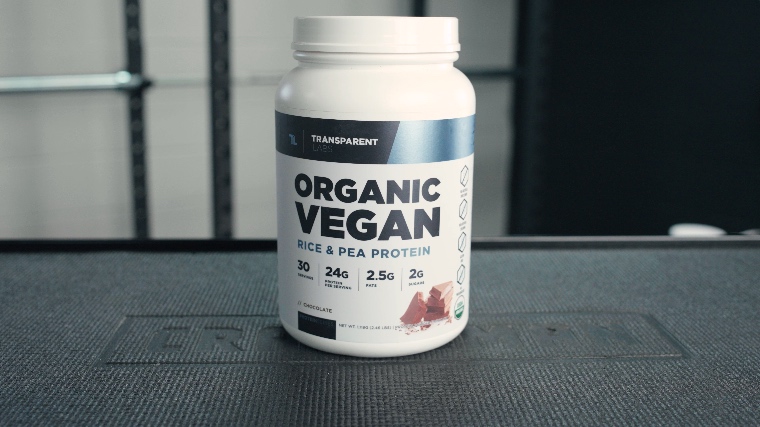
If you’re looking for the best protein powders without artificial sweeteners, you’ll also need to look for proteins sweetened with natural ingredients like stevia, monk fruit extract, or erythritol. Be mindful, though, that natural sweeteners such as stevia can lead to GI distress in some, so again, take your stomach’s tendencies into consideration before finalizing your purchase. (1)
How Much Do Vegan Protein Powders Cost?
If you’re just peeping at the cost of the container before deciding which protein powder is in your price range and which isn’t, you’re not actually getting a sense of how much your powder costs. You want to know how much you are paying per serving and what you’re getting in each scoop, rather than just going for the least expensive jug.
| Best Vegan Protein Powder Overall | Transparent Labs Organic Vegan | $1.67 |
| Best Vegan Protein Powder for Weight Loss | Legion Plant+ | $2.50 |
| Best Organic Vegan Protein Powder | Ritual Essential Daily Shake 18+ | $2.67 |
| Best Vegan Protein Powder for Bodybuilding | Transparent Labs Vegan Mass Gainer | $5.33 |
| Best-Tasting Vegan Protein Powder | Onnit Plant-Based Protein | $2.25 |
| Best Vegan Protein Powder for Athletes | Gainful Vegan Protein | Starting at $3.21 |
| Best Unflavored Vegan Protein Powder | Bulk Supplements Soy Protein Isolate | Starting at $0.42 |
| Best Budget Vegan Protein Powder | Orgain Organic Vegan Protein Powder | Starting at $1.90 |
| Best Vegan Protein Powder for Probiotics | Pure Food Plant-Based Protein Powder | $1.43 |
| Best Vegan Protein Powder with Greens | Vega Protein & Greens | Starting at $1.11 |
| Best Soy Protein Powder | NOW Sports Soy Protein Isolate | $0.95 |
Vegan Protein Powders FAQs
Is vegan protein powder just as good as whey?
What is the best vegan protein powder?
Vegan protein powders used to be difficult to find. Nowadays, most supplement companies have a vegan option, and there are a lot of choices. For our money, Transparent Labs Organic Vegan is our favorite plant-based powder thanks to its third-party tested formulation composed of organic ingredients and high protein count of 24 grams per serving. Additionally, Transparent Labs offers Organic Vegan through the brand’s subscription-based platform, giving athletes the opportunity to grab discounted price totals for repeat orders.
Is vegan protein powder healthy?
A vegan, lactose-free protein powder can certainly be healthy, depending on the product you choose. Prioritize options that are low in artificial ingredients or sweeteners. (1)
Does vegan protein powder mix well?
Since vegan protein is derived from plants and plants contain more fiber, some blends can be grittier than animal-based whey proteins. However, the difference is not significant, especially if you blend vegan powder into a smoothie or shake that contains plant-based milk and/or other ingredients.
Do I need a vegan protein powder to complement my diet?
It’s possible for vegans to have nutritional gaps in their diet, and since vegan protein powders often include a lot of these vitamins and minerals (as well as protein), they can be a great option for anyone looking to fill vegan dietary gaps. (17)
References
- Kasti, A. N., Nikolaki, M. D., Synodinou, K. D., Katsas, K. N., Petsis, K., Lambrinou, S., Pyrousis, I. A., & Triantafyllou, K. (2022). The Effects of Stevia Consumption on Gut Bacteria: Friend or Foe?. Microorganisms, 10(4), 744. https://doi.org/10.3390/microorganisms10040744
- Rogerson D. (2017). Vegan diets: practical advice for athletes and exercisers. Journal of the International Society of Sports Nutrition, 14, 36. https://doi.org/10.1186/s12970-017-0192-9
- Nunes, E. A., Colenso-Semple, L., McKellar, S. R., Yau, T., Ali, M. U., Fitzpatrick-Lewis, D., Sherifali, D., Gaudichon, C., Tomé, D., Atherton, P. J., Robles, M. C., Naranjo-Modad, S., Braun, M., Landi, F., & Phillips, S. M. (2022). Systematic review and meta-analysis of protein intake to support muscle mass and function in healthy adults. Journal of cachexia, sarcopenia and muscle, 13(2), 795–810. https://doi.org/10.1002/jcsm.12922
- FoodData Central. McDonald’s Big Mac.
- FoodData Central. Cooked Brown Rice.
- FoodData Central. Chicken Breast.
- Niklewicz, A., Smith, A. D., Smith, A., Holzer, A., Klein, A., McCaddon, A., Molloy, A. M., Wolffenbuttel, B. H. R., Nexo, E., McNulty, H., Refsum, H., Gueant, J. L., Dib, M. J., Ward, M., Murphy, M., Green, R., Ahmadi, K. R., Hannibal, L., Warren, M. J., Owen, P. J., … CluB-12 (2023). The importance of vitamin B12 for individuals choosing plant-based diets. European journal of nutrition, 62(3), 1551–1559. https://doi.org/10.1007/s00394-022-03025-4
- Babault, N., Païzis, C., Deley, G., Guérin-Deremaux, L., Saniez, M. H., Lefranc-Millot, C., & Allaert, F. A. (2015). Pea proteins oral supplementation promotes muscle thickness gains during resistance training: a double-blind, randomized, Placebo-controlled clinical trial vs. Whey protein. Journal of the International Society of Sports Nutrition, 12(1), 3. https://doi.org/10.1186/s12970-014-0064-5
- El-Sohaimy, S. A., Androsova, N. V., Toshev, A. D., & El Enshasy, H. A. (2022). Nutritional Quality, Chemical, and Functional Characteristics of Hemp (Cannabis sativa ssp. sativa) Protein Isolate. Plants (Basel, Switzerland), 11(21), 2825. https://doi.org/10.3390/plants11212825
- Reed, K. E., Camargo, J., Hamilton-Reeves, J., Kurzer, M., & Messina, M. (2021). Neither soy nor isoflavone intake affects male reproductive hormones: An expanded and updated meta-analysis of clinical studies. Reproductive toxicology (Elmsford, N.Y.), 100, 60–67. https://doi.org/10.1016/j.reprotox.2020.12.019
- VanDusseldorp, T. A., Escobar, K. A., Johnson, K. E., Stratton, M. T., Moriarty, T., Cole, N., McCormick, J. J., Kerksick, C. M., Vaughan, R. A., Dokladny, K., Kravitz, L., & Mermier, C. M. (2018). Effect of Branched-Chain Amino Acid Supplementation on Recovery Following Acute Eccentric Exercise. Nutrients, 10(10), 1389. https://doi.org/10.3390/nu10101389
- Takegaki, J., Sase, K., Yasuda, J., Shindo, D., Kato, H., Toyoda, S., Yamada, T., Shinohara, Y., & Fujita, S. (2020). The Effect of Leucine-Enriched Essential Amino Acid Supplementation on Anabolic and Catabolic Signaling in Human Skeletal Muscle after Acute Resistance Exercise: A Randomized, Double-Blind, Placebo-Controlled, Parallel-Group Comparison Trial. Nutrients, 12(8), 2421. https://doi.org/10.3390/nu12082421
- Zaib, S., Hayat, A., & Khan, I. (2024). Probiotics and their Beneficial Health Effects. Mini reviews in medicinal chemistry, 24(1), 110–125. https://doi.org/10.2174/1389557523666230608163823
- Joy, J. M., Lowery, R. P., Wilson, J. M., Purpura, M., De Souza, E. O., Wilson, S. M., Kalman, D. S., Dudeck, J. E., & Jäger, R. (2013). The effects of 8 weeks of whey or rice protein supplementation on body composition and exercise performance. Nutrition journal, 12, 86. https://www.ncbi.nlm.nih.gov/pmc/articles/PMC3698202/
- Haider, L. M., Schwingshackl, L., Hoffmann, G., & Ekmekcioglu, C. (2018). The effect of vegetarian diets on iron status in adults: A systematic review and meta-analysis. Critical reviews in food science and nutrition, 58(8), 1359–1374. https://doi.org/10.1080/10408398.2016.1259210
- Hertzler, S. R., Lieblein-Boff, J. C., Weiler, M., & Allgeier, C. (2020). Plant Proteins: Assessing Their Nutritional Quality and Effects on Health and Physical Function. Nutrients, 12(12), 3704. https://doi.org/10.3390/nu12123704
- Neufingerl, N., & Eilander, A. (2021). Nutrient Intake and Status in Adults Consuming Plant-Based Diets Compared to Meat-Eaters: A Systematic Review. Nutrients, 14(1), 29. https://doi.org/10.3390/nu14010029
- Kalman D. S. (2014). Amino Acid Composition of an Organic Brown Rice Protein Concentrate and Isolate Compared to Soy and Whey Concentrates and Isolates. Foods (Basel, Switzerland), 3(3), 394–402. https://doi.org/10.3390/foods3030394
- Zhang, M., Juraschek, S. P., Appel, L. J., Pasricha, P. J., Miller, E. R., 3rd, & Mueller, N. T. (2020). Effects of High-Fiber Diets and Macronutrient Substitution on Bloating: Findings From the OmniHeart Trial. Clinical and translational gastroenterology, 11(1), e00122. https://doi.org/10.14309/ctg.0000000000000122
- Carreiro, A. L., Dhillon, J., Gordon, S., Higgins, K. A., Jacobs, A. G., McArthur, B. M., Redan, B. W., Rivera, R. L., Schmidt, L. R., & Mattes, R. D. (2016). The Macronutrients, Appetite, and Energy Intake. Annual review of nutrition, 36, 73–103. https://doi.org/10.1146/annurev-nutr-121415-112624
- Zou, Y., Yu, H., Zhang, L., & Ruan, Z. (2021). Dietary vegetable powders modulate immune homeostasis and intestinal microbiota in mice. Foods, 11(1), 27. https://pubmed.ncbi.nlm.nih.gov/35010153/
